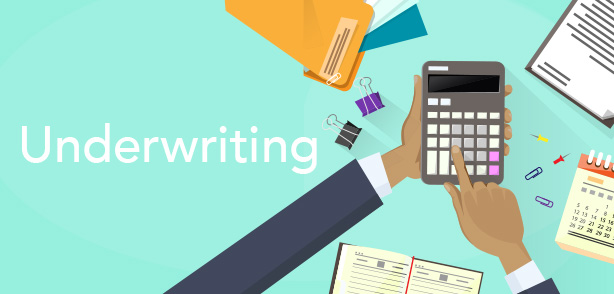Do you know who can fulfill your dreams to become a homeowner? The answer to this question is “a Mortgage loan underwriter”. Now, for those who don’t know anything about loan underwriting, it is actually a process that assesses an individual’s creditworthiness as well as the capacity to repay a mortgage.

While a mortgage underwriter doesn’t make you juggle with several approval criteria, it is always suggested to present them the more information one can provide to portray the creditworthy.
Keep reading to know everything about loan writing!
What Is Loan Underwriting?
People who are planning to apply for a mortgage or purchasing a home soon, it is obvious that they may be confused about loan underwriting.
In simpler words, underwriting is a simple process used by mortgage lenders to examine a person’s credit as well as financial information and the state of the home he or she is hoping to purchase.
Typically, this process is carried out to examine whether the person qualifies for the loan he or she is applying for. To make it more clear to you, a loan underwriter will look at 3 major factors that are credit, capacity, and collateral. It is also often termed as three C’s.
-
Credit
Your credit history is a vital factor while applying for a loan. It is the first and foremost thing any lender considers while approving a loan because it signifies how you have managed your credit in the past. Furthermore, an underwriter will also equally consider your credit report and search for negative information.
For instance, if a person has been declared bankrupt, or experienced a foreclosure, or is delinquent on mortgage/loans/credit card, then he or she is clearly a risky borrower.
Maintaining a good credit history eventually reap ample benefits to a person, particularly at borrowing times. As it does not just improve a person’s chances of getting a loan approved but also helps him or her to qualify for more favorable terms including a low-interest rate as well as down payment requirement.
-
Capacity
Just having a good credit score can’t help a person to get his or her loan approved. With that being said, underwriters analyze various other areas as well. They also check an individual’s ability to make his or her monthly payments.
When talking about capacity, both your income as well as other debt payments are primary.
An underwriter not only looks at where you stand at the present time but also what is your capacity to meet all the additional debts. It is their primary duty to consider what happens after a borrower closes and has a mortgage payment to be maintained.
A very effective and easy method to check and examine your financial capacity is by calculating your debt-to-income ratio. You can do it by yourself very easily! Your debt-to-income ratio is the sum total of your monthly debt payments divided by your gross monthly income.
To help you a bit, we will tell you a good rule of thumb. Your monthly housing payment should be never more than 28 percent of your gross income as well as your total debt-to-income ratio should be 36 percent or less.
However, a person can also acquire a conventional loan with a debt-to-income ratio of up to 50 percent.
In addition to the aforementioned factors, underwriters also consider various other aspects, including how many people are on the loan, how much cash a person will have in reserve after he or she has made the down payment & paid closing expenses, and whether a person’s income is monthly salary or he or she is self-employment.
Read More: Best Home Improvement Loans for 2020
How Can A Person Present His/Her Best-Self To Underwriters?
It is not necessary you may have a chance to speak to a loan underwriter over the phone or one-on-one. Hence, consider the following points to make a satisfactory impression in front of your underwriter.
Consider Everything-
Technological advances allow us to apply for a loan in just a few clicks today. But make sure that you are not rushing.
First things first, you should consider your net income. Plus, take enough time and make a list of all your assets and liabilities as well. This way, you won’t regret your decision afterward.
Be Honest-
Most people with bad credit history or capacity end up fudging the actual numbers to give their chances a boost. Don’t be one of them!
If your underwriter finds that you were not completely honest, then it can result in an instant denial of your loan. In addition to this, it also leads to a fine or prison sentence.
That is it! We hope you got a clear picture of loan underwriting and underwriters. So, now you can apply for a loan or purchase a house with zero doubts in your mind!
